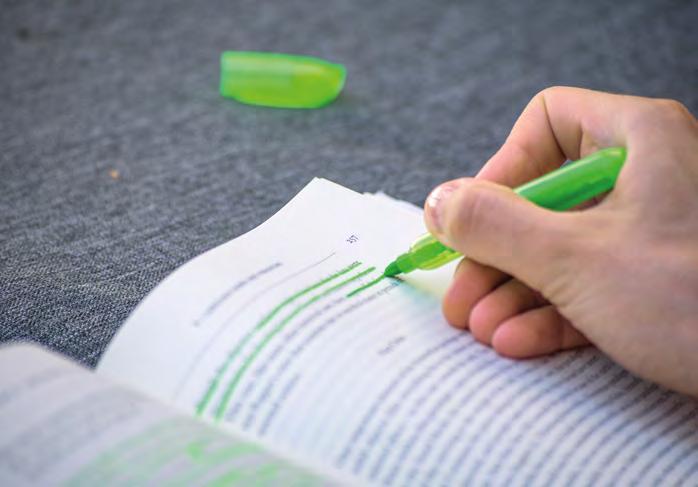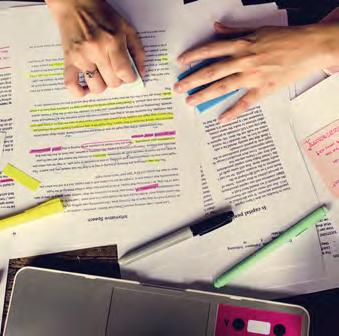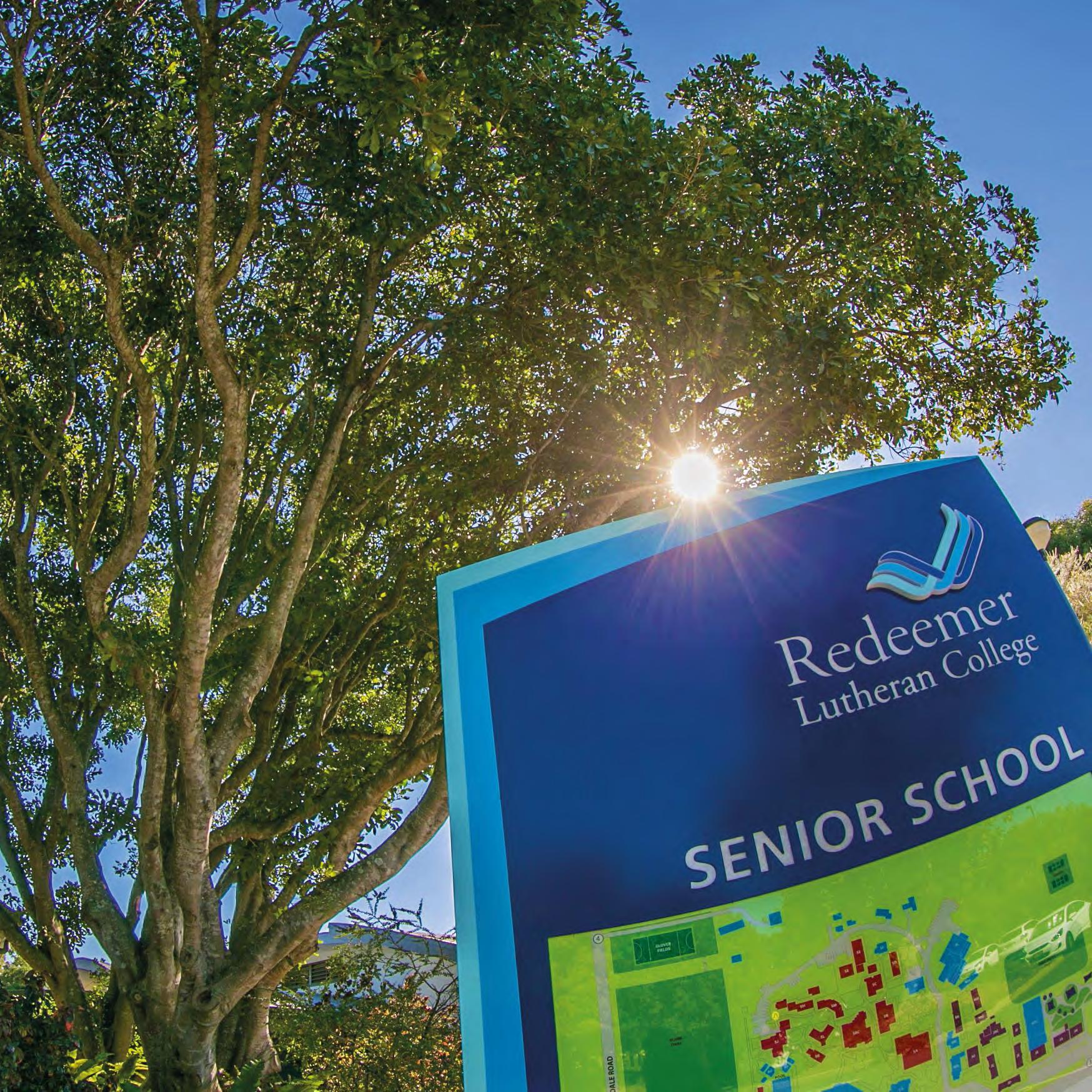
5 minute read
Effective research habits
One of the ways you can ensure your work is your own is to plan and complete your research effectively. Here’s an approach that might work for you:
Plan your Research Use Appropriate Sources
Understand the purpose of your research and what are you trying to find.
Consider the source of your information before you start taking notes. Is it an appropriate source?
Keep Clear Records
Record where information and ideas come from so you can find this information again when needed.
Take Notes and Summarise
Use your own words to show you understand the information and ideas you’re referencing.
Acknowledge the information or ideas of others
Use in-text referencing/citations and reference as you go.
Check with your Teacher
Your subject may have a specific research process you need to follow.
Copyright
Copyright refers to the rights held by the creator of an original work and allows them to control how their work is used. When you use other people’s work in your assessment, you generally don’t need to seek permission from the copyright owner if you reference appropriately.


Referencing
Referencing is a key part of academic integrity.
When you use another person’s work you need to acknowledge it, even when you have summarised and paraphrased the information in your own words.
If you don’t know how to reference properly, you may unintentionally plagiarise another person’s work. Whether intentional or unintentional, plagiarism is still academic misconduct.
When referencing is required
• direct quotes • summarising or paraphrasing someone else’s work • an image/figure/diagram/table or audiovisual material from another person’s work • information from electronic sources • part of someone else’s design • information from oral communication methods e.g. an interview.
When referencing is not required
• common knowledge known about a topic • facts that are commonly known within a subject area • facts that are known and found in many different sources • commonsense observations • your own experiences • results from your own experiments.


Working with others
Collaboration and teamwork are key 21st century skills that you’ll develop throughout senior schooling and your life.
You might work with others during or outside of class to complete group work as part of your assessment. It’s important you understand how to collaborate effectively and ensure the work you submit is your own.
When completing assessment as a group, you need to understand which aspects of the task can be completed collaboratively and which must be completed individually. Make sure that each group member has a clearly defined role. Even though you are working as a group, each student should submit an individual response or be assessed on their own performance. For example, if you are presenting a play in Drama with four other students, each student will be assessed on their performance.
Always speak to your teacher if you have questions or concerns about your role in group work.
Using drafting practices

It is important to understand the requirements of the assessment task and to seek feedback and support from your teacher where appropriate. Being proactive in managing any issues during the assessment process makes it easier to maintain academic integrity.

Managing the length of your response
All assessments indicate the required length of your response. This information: • indicates the depth of the response required • encourages the conciseness of your response • ensures equity of conditions for all students.
There are different ways you can manage the length of your response.


Too long:
Review the task/question
Which information directly relates to your topic? Have you included too much general information?

Too short:
Explain your message/ argument in detail
Have you defined and explained your key concepts? Have you clearly shown the steps in your reasoning?

Be direct and concise
• Do you get straight to the point or do you have a lot of unnecessary information? • Are you repeating or over explaining any points?

Justify and explain
Have you explained the information and/or quotes you’ve used? Is it clear why certain information supports your point?

Consider each paragraph/section
Do they overlap? Could the information be combined? Are you using too many examples?

Check your research
Have you included research from enough sources and used enough examples? Do you need to find more information?

Drafting
A draft is an early version of a response to an assessment.
Teachers provide feedback on your draft so you can develop your response but the feedback must not compromise the authenticity of your work.
Teacher feedback may:
• indicate some textual errors and that the draft requires more careful editing, but it is not your teachers’ responsibility to correct or edit all the textual errors in a draft • provide a summary of their feedback and advice to the whole class.
Teacher feedback won’t:
• provide you with new ideas, language or research to improve the quality of your response • edit and proofread for spelling, grammar, punctuation and calculations. The quality of a draft may vary from a brief outline to a response that is nearing completion. Your assessment task may also include checkpoints where you discuss or show your teacher your progress. The type of draft will depend on the subject and assessment technique. For example, if your assessment requires a presentation, your draft might be a rehearsal.
Your draft can also be used as evidence to prove your work is your own but it will not be marked or graded unless you fail to submit your final piece.
myqce.qcaa.qld.edu.au/study-tips.html










